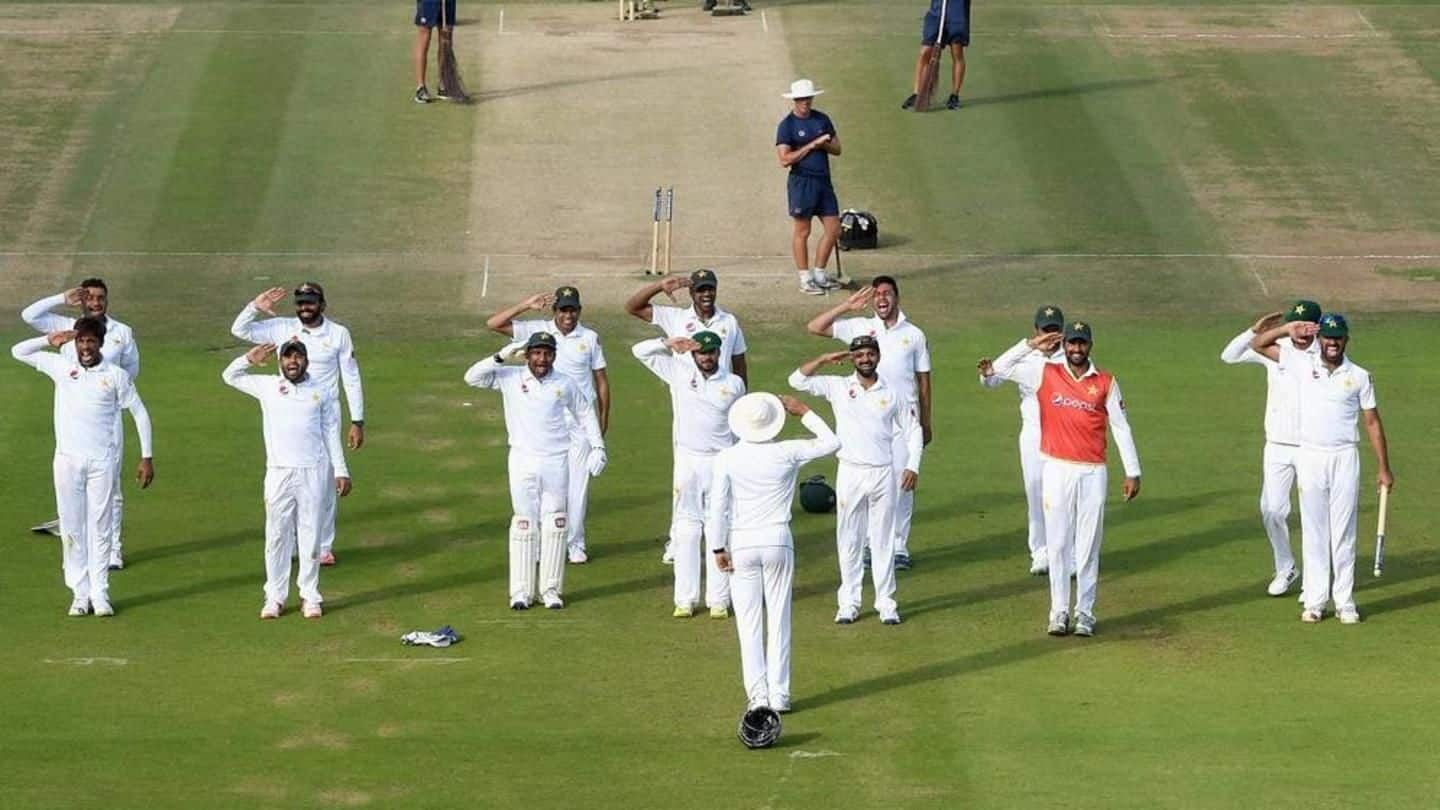
ICC's anti-corruption unit warns Pakistan players not to wear smart-watches
What's the story
Pakistan players will not wear smart-watches on the field anymore, after ICC's anti-corruption officials paid them a visit on the first day of the opening Test against England. This is just a precautionary measure and there are no allegations against Pakistan players. Pakistan are visiting England for a two-match series. The first Test match started on Thursday at Lord's.
Clean chit
No allegations of wrongdoing laid on Pakistan players
No allegations of wrongdoing have been laid on the Pakistan team. However, when Asad Shafiq and Babar Azam were seen wearing smart-watches, it became a cause for concern for the ICC officials. The ICC wants to avoid any possibility of cheating and the Pakistan players have been instructed against wearing such devices.
Quote
Pakistan told to ditch smart-watches
"But yes, an ICC anti-corruption officer came to us and told us this is not allowed. So next time nobody will wear them." Pakistan bowler Hasan Ali said.
ICC rules
Electronic transmission devices have been banned by ICC
Smart watches have not been explicitly banned by the ICC but they need to be disabled to comply with the anti-corruption norms. Mobiles phones and other devices of electronic transmission are usually handed over to the ICC anti-corruption officer before the fixture. The devices are returned back to the players at the end of day's play.
Busted
Smart-watches have been used for cheating in the past
The reason why players were wearing the smart-watches was to check the calories that they have burnt. However, in the past, these smart wearables have been used for cheating on the field. Last year, Boston Red Sox, one of the teams of the Major League Baseball, were found guilty of using these to inform their batsmen of the signs used by pitchers during matches.
Serial offenders
Pakistan have a history of spot fixing
Pakistan players have been in the limelight for wrong reasons after being involved in spot-fixing scandals. Mohammad Amir, who is currently playing the Test at Lord's, was pulled up in 2010 for spot-fixing against England. Mohammad Asif and Salman Butt were the other players who served a ban in the same case.